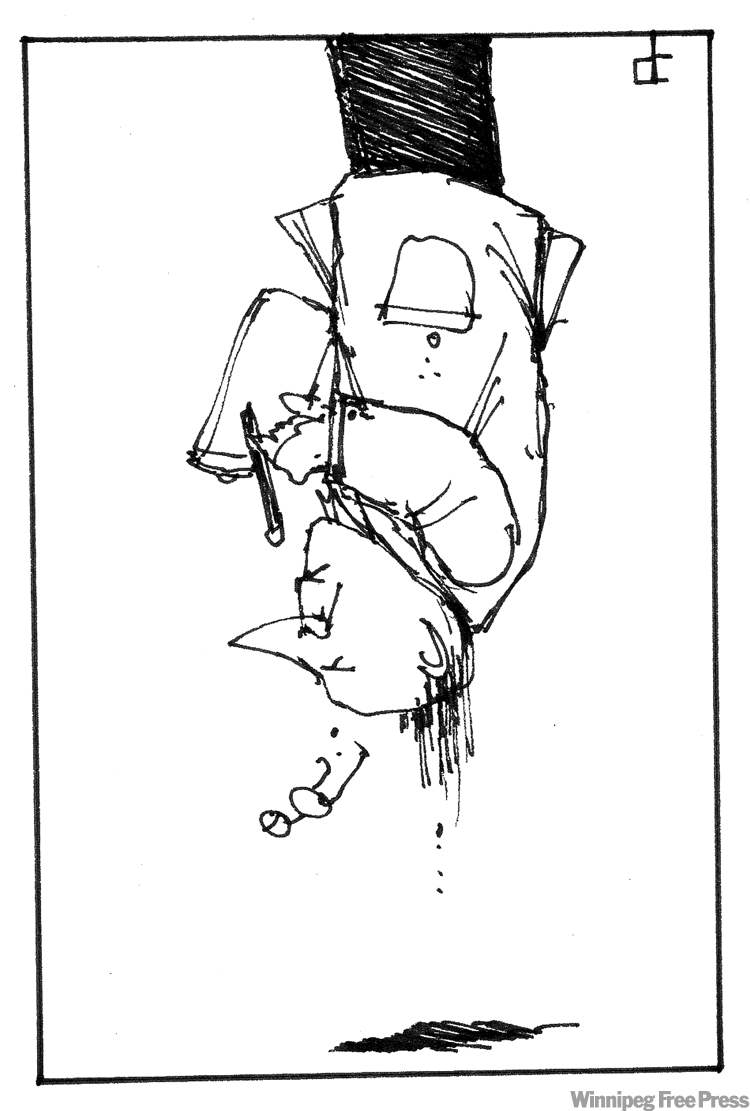Focusing on core issues
Advertisement
Read this article for free:
or
Already have an account? Log in here »
To continue reading, please subscribe:
Monthly Digital Subscription
$0 for the first 4 weeks*
- Enjoy unlimited reading on winnipegfreepress.com
- Read the E-Edition, our digital replica newspaper
- Access News Break, our award-winning app
- Play interactive puzzles
*No charge for 4 weeks then price increases to the regular rate of $19.95 plus GST every four weeks. Offer available to new and qualified returning subscribers only. Cancel any time.
Monthly Digital Subscription
$4.99/week*
- Enjoy unlimited reading on winnipegfreepress.com
- Read the E-Edition, our digital replica newspaper
- Access News Break, our award-winning app
- Play interactive puzzles
*Billed as $19.95 plus GST every four weeks. Cancel any time.
To continue reading, please subscribe:
Add Free Press access to your Brandon Sun subscription for only an additional
$1 for the first 4 weeks*
*Your next subscription payment will increase by $1.00 and you will be charged $16.99 plus GST for four weeks. After four weeks, your payment will increase to $23.99 plus GST every four weeks.
Read unlimited articles for free today:
or
Already have an account? Log in here »
Hey there, time traveller!
This article was published 15/09/2010 (5599 days ago), so information in it may no longer be current.
It would be hard to find a better example of political dithering than the question of who is responsible for public health inspections in Winnipeg, which has been the subject of provincial-civic debate for nearly 40 years.
The city’s environmental health services branch enforces standards in Winnipeg’s oldest neighbourhoods, while the province does it in the suburbs and beyond. The primary task involves restaurant inspections to ensure the food is safe, but other duties performed by the city and province include the smoking bylaw, inspections of swimming pools, tattoo parlours, and homes and buildings that might have unsanitary conditions.
In most provinces, these services are delivered by the province or by regional health authorities. In Ontario, municipal boards of health do the work, but they are 75 per cent funded by the province.

According to one study, the split jurisdiction in Winnipeg results in inconsistent service, obscures the lines of accountability, promotes confusion, duplication and erratic enforcement. Some businesses, for example, are more likely to be inspected in the inner city than in the suburbs, where the standards of inspection may or may not be higher.
These are good arguments for creating a single authority, which the city could help fund, but the preferred model is the one the province and city have adopted for other similar services. In the last 10 years, for example, the city has transferred responsibility to the province for public health nurses, social services such as income assistance, medical health officers and even hydro supply. Even ambulance service is substantially funded by the Winnipeg Regional Health Authority, even though it can fairly be asked why the agency doesn’t run the entire service as required under the Regional Health Authorities Act.
The city’s savings for health inspections would only be $3 million, but it’s a much larger percentage of the city’s budget than it is of the province’s.
As the civic election evolves, candidates could consider the health inspection issue in the larger context of municipal reform and of the need to reshape the civic-provincial relationship.

